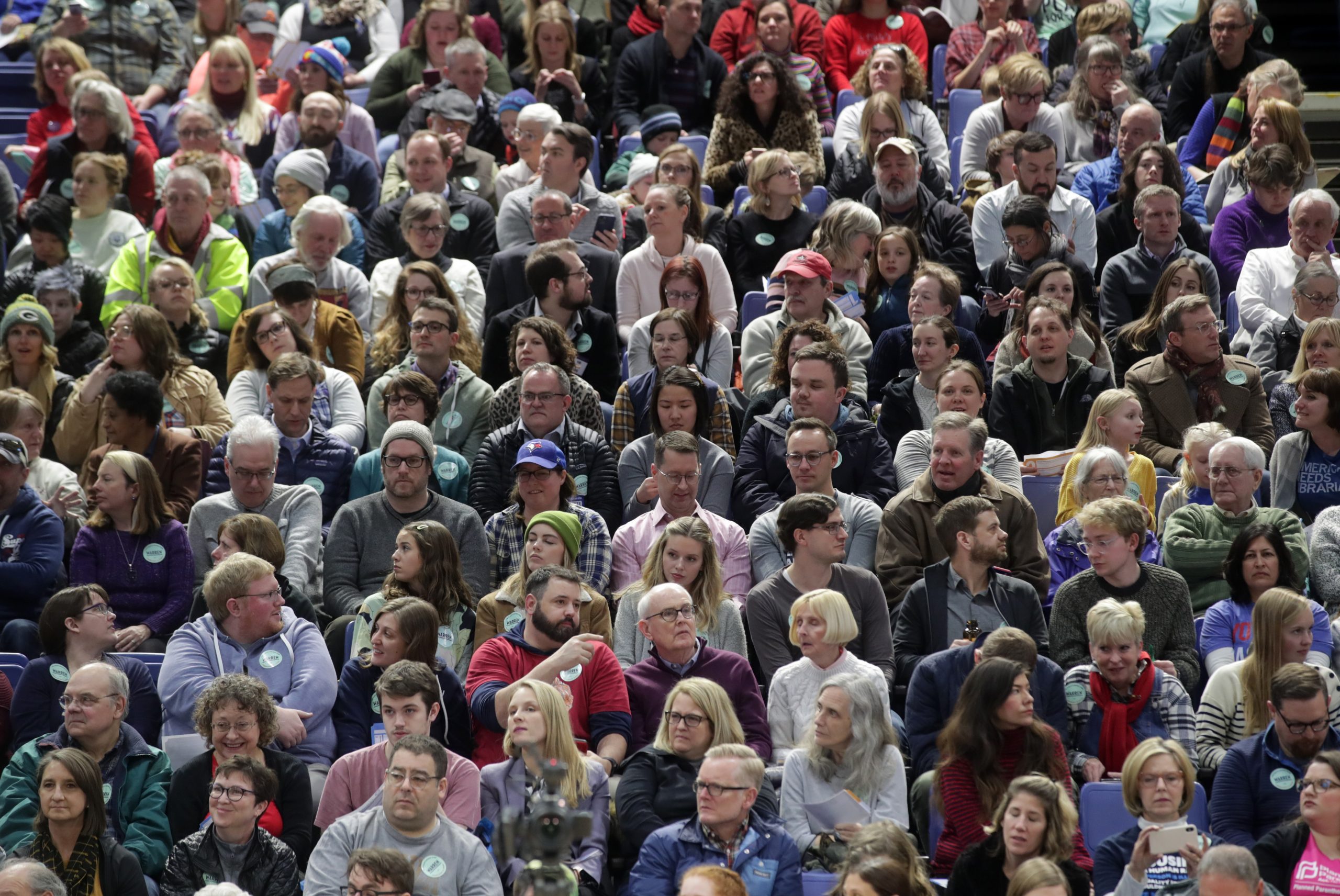The U.S. Democratic presidential nominating race got off to a chaotic start in Iowa on Monday, as the results of the state’s caucuses were delayed for hours while party officials double-checked “inconsistencies” in the initial count.
Voters poured into more than 1,600 schools, community centers and other public locations for the caucuses in Iowa, the first state to choose a November election challenger to Republican U.S. President Donald Trump.
But the Iowa state party delayed the results as it performed “quality checks” after finding “inconsistencies” in the reporting of the data from the caucus sites, sparking frustration in Democratic campaigns and criticism from Republicans.
It was unclear when any results would be released.
“In addition to the tech systems being used to tabulate results, we are also using photos of results and a paper trail to validate that all results match and ensure that we have confidence and accuracy in the numbers we report,” state party spokeswoman Mandy McClure said.
She said the underlying data and paper trail were sound.
Iowa voters were meeting to render judgment on a field of 11 Democratic contenders led by front-runners Senator Bernie Sanders of Vermont and former Vice President Joe Biden, who have battled for the top in recent Iowa opinion polls.
Long lines and heavy crowds were reported in some locations, but doors to the caucus sites closed and the process began at 7 p.m. (0100 GMT on Tuesday).
“It’s definitely going to delegitimize whoever wins,” a source in former South Bend, Indiana, Mayor Pete Buttigieg’s campaign said of the delay in results, adding it would dampen the immediate benefits of a strong night.
Biden’s general counsel, Dana Remus, told Iowa state party officials in a letter that there were widespread failures in the party’s system of reporting results.
“We believe that the campaigns deserve full explanations and relevant information regarding the methods of quality control you are employing, and an opportunity to respond, before any official results are released,” Remus said.
Republican Brad Parscale, Trump’s campaign manager, called it a “Democratic Party meltdown,” on Twitter. “They can’t even run the caucus and they want to run the government. No thank you.”
But Republicans in Iowa have had their own history of chaos with the caucuses. On the night of the party’s 2012 caucuses, Mitt Romney was declared to have won by eight votes. But the party said two weeks later that Rick Santorum was the actual winner by a 34-vote margin.
Mostly white, rural Iowa is the first test in the state-by-state battle to pick a Democratic nominee to face Trump in the Nov. 3 election. After more than a year of campaigning and more than $800 million in spending, the results in Iowa were expected to begin to provide answers for a party desperately trying to figure out how to beat the businessman-turned-president.
Voters are pondering whether to back someone with appeal to independents and disaffected Republicans, like moderates Biden, Buttigieg and Senator Amy Klobuchar of neighboring Minnesota, or someone who energizes the party’s liberal base and brings out new voters, like progressives Sanders and fellow Senator Elizabeth Warren of Massachusetts.
CLAIMING VICTORY
At the caucus sites, voters gathered in groups by candidate preference in a public display of support. If a candidate did not reach a threshold of support of 15% of voters, the total needed to be considered viable, that candidates’ supporters were released to back another contender, leading to a further round of persuasion.
But with no results to celebrate or mourn, the candidates all came out to speak to supporters and claim victory.
“I am here tonight to tell you: If you have hope that America can be better than it has been these last few years, then this campaign is for you,” Warren told her supporters.
Even if one candidate wins by a commanding margin in Iowa once the results are announced, Democrats may still lack clear answers as the race moves on to the other three early voting states of New Hampshire, Nevada and South Carolina later in February.
Whoever remains in the race by Super Tuesday on March 3, when 15 states and territories vote, will also confront billionaire former New York Mayor Michael Bloomberg, who is skipping the early states in favor of focusing on states rich in delegates to the Democratic National Convention in July.
Sanders, who finished in a virtual dead heat with eventual nominee Hillary Clinton in Iowa during his first presidential run in 2016, has surged in many Iowa polls to move just ahead of Biden.
Warren and Buttigieg remain within striking distance, and many polls show a big bloc of undecided Iowa voters, creating the potential for upsets and late surges.
Iowa state party officials are expecting a record turnout, exceeding the nearly 240,000 voters who attended the caucuses in 2008 amid the excitement over Barack Obama’s first presidential candidacy.
Beating Trump was the prime consideration for voters as they entered the caucus, according to a poll of 1,512 Iowa Democrats conducted by the National Election Pool, with 62% saying they want someone who can beat Trump and 36% wanting a nominee who agrees with them on major issues.
The entrance poll also found 57% backed a government-run healthcare plan similar to the Medicare for All proposals of Sanders and Warren, a potentially good sign for them.
Republicans were also holding Iowa caucuses on Monday, with Trump, who has around 90 percent support in his party, declared the projected winner by various media outlets.
(Reporting by Trevor Hunnicutt, Joseph Ax, Tim Reid, Simon Lewis, Jarrett Renshaw and Ginger Gibson; Writing by John Whitesides; Editing by Colleen Jenkins, Howard Goller and Peter Cooney)

























 Continue with Google
Continue with Google